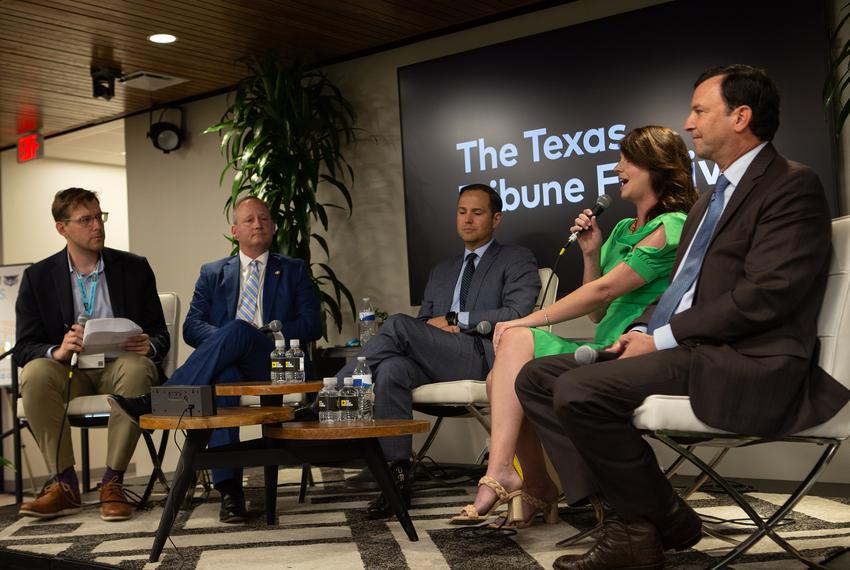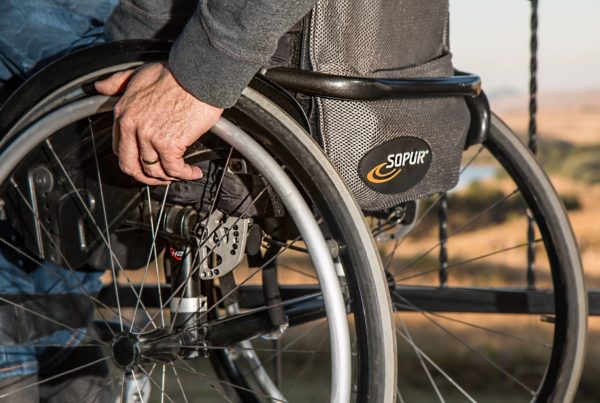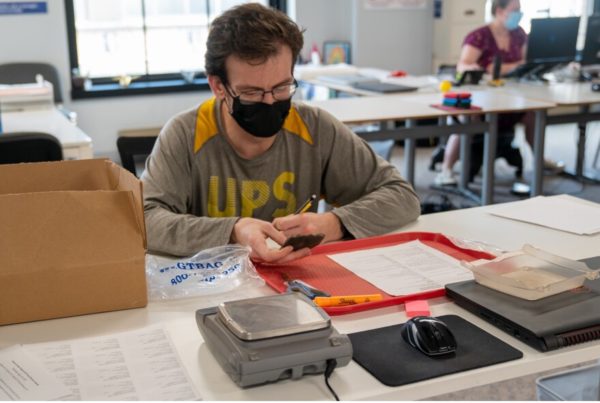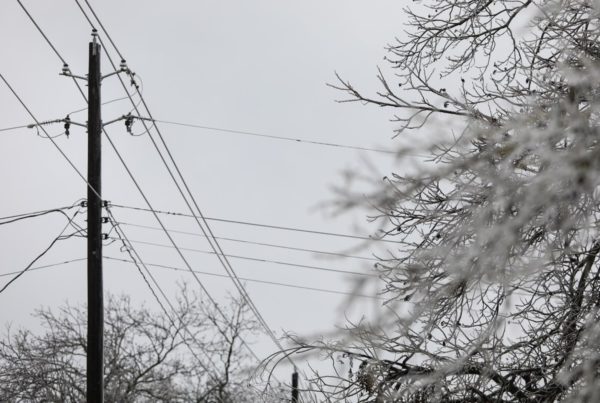From The Texas Tribune:
With less than four months until the first day of the 2023 legislative session, Texas Republican and Democratic lawmakers and candidates on Friday laid out their vision for how to spend their 140 days together.
More than a dozen legislative leaders spoke Friday during a series of panels at the 2022 Texas Tribune Festival.
With likely total control of state government, Republicans will have the opportunity to further a conservative agenda. Among the issues that will dominate the session are immigration and the border, abortion and education. Meanwhile, House and Senate Democrats will have little legislative power to curtail the whim of their Republican peers but hope to compromise on some issues.
Here are five takeaways from the policy panels ahead of the upcoming legislative session.
Gov. Greg Abbott’s busing program has drawn attention to the border, but lawmakers say there has been little relief.
Amid record numbers of crossings at the U.S.-Mexico border, Gov. Greg Abbott took the step of busing migrants to major Democratic-led cities to draw attention to the issue. He has sent more than 10,000 migrants to Washington, D.C., New York City and Chicago.
His action drew praise — and copycats — from Republican leaders across the country and criticism from Democrats for using migrants as political pawns.
Local officials from border communities on both sides of the aisle agree that there is a problem that needs to be addressed but deviated over how to address the issue.
“Most folks are pretty frustrated. There’s a lot of anger out there,” said former state Sen. Peter Flores, a Republican from Pleasanton. Flores served in the Texas Senate from 2018 to 2021. He is now running in a different district, Senate District 24, that was redrawn this year to include his hometown.
State Rep. Dustin Burrows, R-Lubbock, applauded the governor’s busing strategy. He said Abbott is shaping the national conversation.
“You get one side saying, ‘We’re safe and secure. There is no problem,’” said Morgan LaMantia, the Democratic candidate for Texas Senate District 27, which includes part of the lower Rio Grande Valley. “We get the other side talking about how we live in a third-world area and it’s a war zone. Neither one of those is true.”
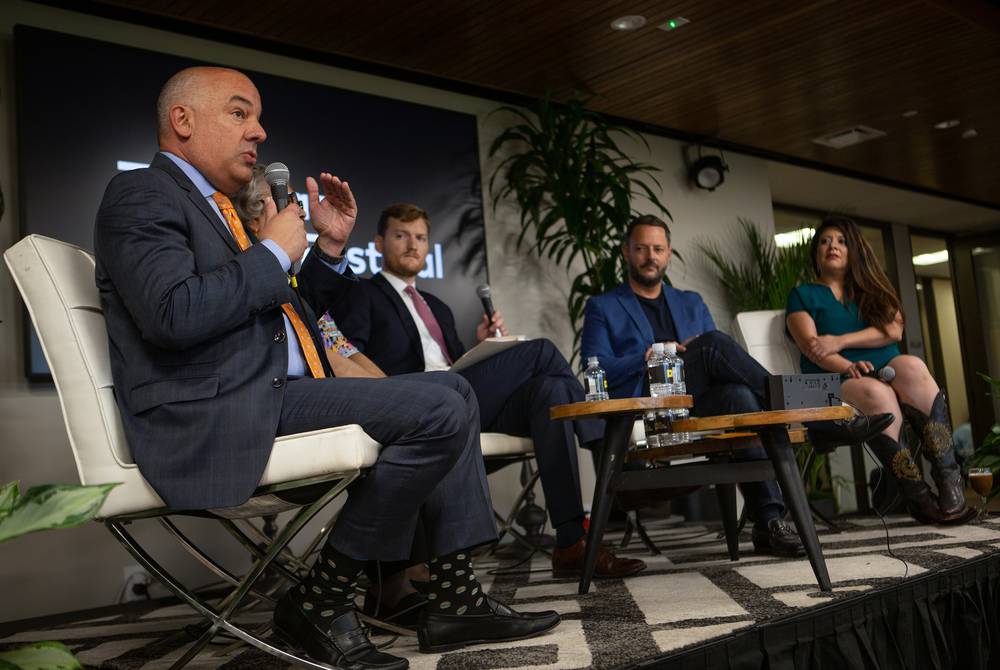
Chris Turner speaks on a House Democrats panel which includes Rafael Anchía, Mary González, Senfronia Thompson at The Texas Tribune Festival on Friday in Austin.
The state’s abortion ban could see clarification.
Democrats see an opening to work with Republicans to clarify the Texas abortion law to ensure doctors understand when the procedure can be provided. They recognized that this may be the only area of compromise with their partners across the aisle on the issue.
Republicans expressed a willingness to clarify the abortion ban, with one Senate Republican saying he would support new exceptions.
State Sen. Robert Nichols, R-Jacksonville, announced his support for exceptions to the abortion law at the Festival.
“If I get a chance to vote for an exception to rape, I will vote yes,” the East Texas senator said.
State Sen. Carol Alvarado, D-Houston, denounced what she said was Republicans’ governmental overreach in banning abortion. She said the blanket banning of abortions, which provides little clarity about when doctors can provide the procedure, was out of step with voters.
If we can maybe address some of the definitions and talk about rape and incest, that could bring some relief,” Alvarado said.
After the Uvalde shooting, gun control reform doesn’t look promising.
Nearly four months to the day after Texas’ most deadly school shooting in Uvalde, Republican lawmakers said there was scant support to tighten the state’s gun laws.
Among the changes some families of Uvalde shooting victims have called for is raising the minimum age to purchase a semi-automatic rifle from 18 to 21 years old.
Burrows, the Lubbock Republican, said raising the minimum age to purchase semi-automatic weapons is a constitutional issue.
“We have decided that there is an age of majority, and that age is 18,” Burrows said.
Last month a federal judge struck down a Texas prohibition that limited adults under 21 from carrying handguns.
Nichols, however, said he is trying to keep an open mind on raising the minimum age, but no major GOP leaders have echoed any willingness to compromise.
“The maturity of an 18-year-old is still in high school versus a 21-year-old in college. … There’s a lot that changes,” he said.
Democrats have long tried, unsuccessfully, to regulate access to guns.
“There’s no bottom here. It is a fetish and a cult of guns that is causing us to go beyond the looking glass,” said state Rep. Rafael Anchía, D-Dallas. “No one thinks it’s a good idea for an 18-year-old to be able to buy military-style weaponry.”
State Sen. César Blanco, D-El Paso, said Republicans need to stop diverting attention from gun control by blaming mental health or trying to harden schools to prevent future mass shootings.
The future of school vouchers remains uncertain.
The other school-related issue likely to see debate in the upcoming session is the effort by Republican leaders to expand the use of school vouchers, which allow families to divert funding to private schools.
Critics of school vouchers say these programs defund public schools, while proponents say these efforts give parents more choice.
State Rep. Mary González, D-Clint, said the effort to expand school vouchers is just one more step in the direction of underfunding public schools.
“I don’t think it’s an accident. I think there’s a lot of intentionality in dismantling trust to teachers, to public education,” González said.
She said with this dismantling of trust, it’s no surprise there is a shortage of teachers.
Republicans said the challenges facing schools, especially in rural areas, may not be solved by school vouchers.
“We’re losing teachers in droves, and if we don’t figure out how to improve their work conditions … then we’re going to continue to lose teachers,” said Kevin Sparks, a Republican candidate for Texas Senate District 31, which includes Amarillo.
Everyone agrees the grid needs more fixing.
Reinforcing Texas’ power grid emerged as one of the top issues for Republican lawmakers. Operators of Texas’ grid — which notoriously collapsed during a 2021 winter storm — asked residents to reduce electricity use this summer when record temperatures threatened to overburden the power supply system, which could result in rolling blackouts.
“[Winter storm] Uri showed us that we had a lot of problems in the grid, and it’s our fault that we had not seen (them),” said Rep. Phil King, R-Weatherford, who is running for Senate District 10, referring to the 2021 winter storm that resulted in the death of hundreds.
Senate District 10 includes southern Tarrant County.
Blanco, the El Paso Democrat, also acknowledged that voters want state leaders to address “bread and butter” issues like infrastructure, including the power grid.
During Friday’s sessions, GOP lawmakers pointed to renewable energy as one source of the grid’s problems. King said renewables have been so heavily subsidized that it “skewed the market.”
Nichols said that the subsidization of renewable energy has created an unfavorable climate that disincentivizes gas companies from coming to Texas. Nichols urged the need to have an alternative to renewable energy, like natural gas, when the wind and sun aren’t available to power wind turbines or solar panels.
Jesus Vidales, Pooja Salhotra and Trent Brown contributed to this story.


